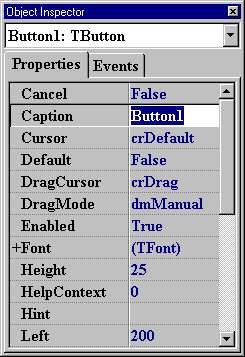

Nested types present a way to keep conceptually related types together and to avoid name collisions. If you include (ancestorClass), and memberList is empty, you can omit end. The new class inherits directly from the predefined System.TObject class, in case you omit (ancestorClass). A sealed class cannot be extended through inheritance. An entire class can be declared abstract even if it does not contain any abstract virtual methods. Optional elements of the class type declaration
memberList declares members of the class: fields, methods, and properties. Required elements of the class type declaration Type className = class ( ancestorClass ) type nestedTypeDeclaration const nestedConstDeclaration memberList end (You cannot define a class type within a variable declaration.) Declare classes only in the outermost scope of a program or unit, not in a procedure or function declaration.Ī class type declaration has the following form: For example, SomeObject.Size := 100 assigns the value 100 to the Size property of the object referenced by SomeObject you would not write this as SomeObject^.Size := 100.Ī class type must be declared and given a name before it can be instantiated. But you do not have to explicitly dereference a class-type variable to access the object it points to. Like other pointers, class-type variables can hold the value nil. Hence more than one variable can refer to the same object. Objects are created and destroyed by special methods called constructors and destructors.Ī variable of a class type is actually a pointer that references an object. Each object has a unique copy of every field defined in the class, but all instances of a class share the same methods. Objects are dynamically allocated blocks of memory whose structure is determined by their class type. From other parts of a program outside of the object itself, a property appears in most respects like a field. 

Properties have access specifiers, which determine how their data is read and modified.

A property is an interface to data associated with an object (often stored in a field). Some methods (called class methods) operate on class types themselves. Most methods operate on objects, that is, instances of a class. A method is a procedure or function associated with a class. Like the fields of a record, fields of classes represent data items that exist in each instance of the class. A field is essentially a variable that is part of an object. The fields, methods, and properties of a class are called its components or members. Instances of a class type are called objects. 4 Forward Declarations and Mutually Dependent ClassesĪ class, or class type, defines a structure consisting of fields, methods, and properties. 3.1 Private, Protected, and Public Members.








 0 kommentar(er)
0 kommentar(er)
